Associate or Full Professor in American Indian and Indigenous Studies
The property
POSITION OVERVIEW
Position title: Associate Professor or Full Professor
Salary range: The posted UC salary scales set the minimum pay determined by rank and/or step at the time of appointment. See Table 1 for the salary ranges. Off-scale salaries and other components of pay, i.e. a salary that is higher than the published system-wide salary at the designated rank and step, are offered when necessary to meet competitive conditions. A reasonable estimate for this position is $100,000 - $150,000 at the Associate level and $120,000 - $300,000 at the Professor level.
Percent time: 100%
Anticipated start: Fall 2024
Position duration: Tenured
APPLICATION WINDOW
Open date: January 19, 2024
Next review date: Monday, Feb 19, 2024 at 11:59pm (Pacific Time) Apply by this date to ensure full consideration by the committee.
Final date: Sunday, Jun 30, 2024 at 11:59pm (Pacific Time) Applications will continue to be accepted until this date, but those received after the review date will only be considered if the position has not yet been filled.
POSITION DESCRIPTION
The University of California, Santa Barbara (UCSB) invites applications for a tenured position in the area of American Indian and Indigenous Studies at the rank of Associate Professor or Full Professor, to be located in a department in the Division of Mathematics, Life, and Physical Sciences (MLPS). The appointment is expected to be in a department in MLPS, although a joint or cross-divisional appointment can be considered. This position is part of a coordinated recruitment of tenured scholars in the three divisions of the College of Letters and Science. This faculty search, along with faculty searches in the Division of Humanities and Fine Art and the Division of Social Sciences, is being conducted in 2023-2024. Please visit this link to apply for the position in the Division of Humanities and Fine Arts and visit this link to apply for the position in the Division of Social Sciences.
This recruitment builds upon a substantial and dynamic cadre of recently-appointed early career faculty across the divisions and disciplines to expand and strengthen American Indian and Indigenous Studies (AIIS). It is the result of a core group of several faculty and community members who devoted many years to program building in this area. We invite applications in any of the following fields and areas of expertise, including but not limited to: geography, environmental studies, statistics and applied probability, earth sciences, biology, marine science, ecology, botany, traditional ecological knowledges, natural resource management, data sovereignty, and Indigenous sciences (oceanography, astronomy, physics, navigation), ecology, and Indigenous engineering, psychology, neuroscience, public health, arctic studies, or other relevant fields. In addition to scholarly and pedagogical contributions to their home department(s), the ideal candidate should have a record that demonstrates the ability to advance and build the national profile of the American Indian and Indigenous Studies (AIIS) program on campus. This includes working with interdisciplinary and inter-divisional faculty and students as well as with community members to promote and sustain an innovative and intellectually expansive community for American Indian and Indigenous-centered research, curriculum and initiatives at UCSB. We are seeking a candidate who values working collaboratively towards community building and has the leadership skills and experiences to help develop AIIS at UCSB. Responsibilities of faculty members generally include the development of an actively funded research program of the highest quality, teaching at undergraduate and/or graduate levels, recruitment, supervision and mentorship of graduate students, and participation in university service and professional activities.
This position is open until filled. The University is especially interested in candidates who can contribute to the diversity and excellence of the academic community through research, teaching and service as appropriate to the position.
Background on American Indian and Indigenous Institutional History
The AIIC (American Indian and Indigenous Collective) continues the vision initiated by generations of student organizing, student-driven research and community building at UCSB. UCSB’s American Indian and Indigenous Student Association (AIISA) was founded over fifty years ago, just 25 years after the university itself. The American Indian and Indigenous Studies Minor was instituted 20 years ago, and 10 years ago American Indian and Indigenous graduate students initiated and founded the AIIC (American Indian and Indigenous Collective) Research Focus Group. Under the aegis of an AIIC umbrella, initiatives and programs serving UCSB and Native and Indigenous communities at large were sustained and developed. These include STANDS (Students Taking Action for Native Dreams and Success), a student-initiated college outreach program focused on junior high and high school American Indian and Indigenous students. Also, an American Indian and Indigenous Gardens Alliance was established in consultation and collaboration with local Indigenous Chumash community members and UCSB Native students in 2015 and continues today. Community sustaining activities affiliated with the gardens such as the Native Families project, the Native Arts Collaborative, and University/Community partnership with the AIIGA continue to emerge from the AIIC umbrella. In response to student demand the AIIS minor was expanded in 2018 to include several course options within Environmental Studies that focus on Traditional Ecological Knowledges, Sustainability, and Indigenous Environmental Justice. The most notable development reaching beyond the UCSB campus is the annual AIIC Symposium, which in 2023 is ten years strong. The AIIC and the symposium graduate student visionaries want to provide opportunities for all students and community members to forge relations and scholarship with Native and Indigenous relatives near and far by sharing knowledges, stories, and communities. Pre-pandemic in-person attendance was consistently over 125 and virtual participation reached over 450 global participants in 2022.
UCSB’s AIIC Academic Council, established in summer 2016, is a product of this ceaseless work. In June 2016 at the request of Native (graduate and undergraduate) student activists, a meeting was held with UCSB senior administrators to demand the reinstatement and expansion of academic and student services and programs for American Indian and Indigenous students at UCSB. At that time the AIIC Academic Council was created to serve as a liaison body between UCSB administration and the Native student community. The AIIC AC’s establishment and commitment to consensus decision making fosters shared constituent and community governance and involvement. The Academic Council includes the participation of eight recently hired, early career scholars across the divisions in the College of Letters and Science. In tandem with the opening of an AII Center on campus, an AIIC-Academic Council plan for a Major in AIIS is currently under review and includes the template for establishing a department. Please visit the UCSB American Indian and Indigenous Studies website at aiis.ucsb.edu.
Acknowledgements and Commitments
The AIIC Academic Council and its members acknowledge the traditional custodians of these lands and waters and are committed to working collaboratively with tribes, bands, councils, committees, and families among the local Chumash Peoples and other Native and Indigenous Peoples of lands currently known as the Americas and beyond. We seek counsel, direction and partnering with those who have cared for these lands and waters across millennia. UCSB currently sits on a distinguished traditional place of learning, known to have drawn Peoples from distances for thousands of years in safety, community, and sharing, not only of resources but also of knowledge. In partnership with Chumash Elders and scholars and Native and Indigenous Peoples and scholars from the Americas and beyond, we listen to and learn from place-based understandings of land, language, culture, and peoples, thereby shifting epistemological perspectives in ways that strengthen and intertwine current disciplinary practices.
QUALIFICATIONS
Basic qualifications (required at time of application)
PhD at the time of application, in any area related to geography, environmental studies, statistics and applied probability, earth sciences, biology, marine science, ecology, botany, traditional ecological knowledges, natural resource management, data sovereignty, and Indigenous sciences (oceanography, astronomy, physics, navigation), ecology, and Indigenous engineering, psychology, neuroscience, public health, arctic studies, or other relevant fields within Mathematical, Life, and Physical Sciences.
Preferred qualifications
- Original and significant research in fields that advance American Indian and Indigenous studies
- Demonstration of effective teaching and mentoring
- Expression of an innovative vision of the future of American Indian and Indigenous Studies
- Evidence of committed professional, campus, and community leadership
- Evidence of generative, reciprocal relationships with Indigenous peoples and communities.
- Ability to enhance equity and diversity through teaching, mentorship, research, and service
APPLICATION REQUIREMENTS
Document requirements
- Curriculum Vitae - Your most recently updated C.V.
- Cover Letter - Please provide a cover letter that describes your research, teaching experience, qualifications, your reciprocal relationship(s) with American Indian and Indigenous Communities, and how you have potential to contribute intellectually and educationally to enhancing American Indian and Indigenous Studies at UC Santa Barbara.
- Statement of Research - Please provide information on your current research focus, your plans for the future, and the potential for sustained impact of your proposed research, as well as reciprocal collaboration with American Indian and Indigenous Communities. This statement may also include information about possible areas of collaboration with American Indian and Indigenous Communities, as well as department or interdisciplinary collaboration.
- Statement of Teaching - Please provide a statement that details your teaching and mentorship experience, a brief summary of your teaching philosophy and/or pedagogical approach, and one or more topics that you would be interested in teaching.
- Statement of Contributions to Diversity - Please provide a statement addressing past and/or potential contributions to diversity through your research, teaching, and/or service. Applicants are strongly encouraged to submit a diversity statement that describes how their contributions reflect the needs and concerns of a demographically diverse student population.
- Writing Sample - Please provide a sample of your written scholarly work
- Writing Sample #2 - Applicants are welcome to submit a second writing sample. Semi-finalists may be asked to submit a second writing sample, if not submitted at the time of application. (Optional)
- Sample Syllabi - If not provided at time of application, semi-finalists may be asked to provide sample syllabi. (Optional)
Reference requirements
- 3 required (contact information only)
Reference letters will be solicited from the contacts provided for candidates invited to interview on campus.
Apply link: https://recruit.ap.ucsb.edu/JPF02636
Help contact: alex.radde@ltsc.ucsb.edu
ABOUT UC SANTA BARBARA
The University of California is an Equal Opportunity/Affirmative Action Employer. All qualified applicants will receive consideration for employment without regard to race, color, religion, sex, sexual orientation, gender identity, national origin, disability status, protected veteran status, or any other characteristic protected by law.
As a condition of employment, you will be required to comply with the University of California Policy on Vaccination Programs, as may be amended or revised from time to time. Federal, state, or local public health directives may impose additional requirements.
JOB LOCATION
Santa Barbara, CA

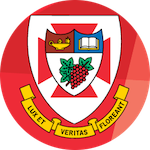

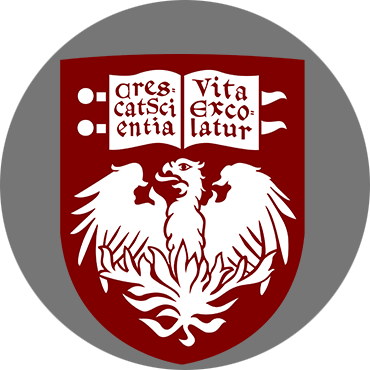

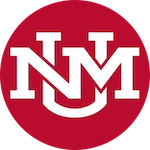
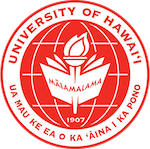


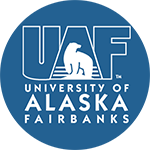
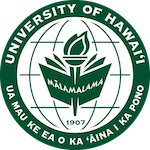
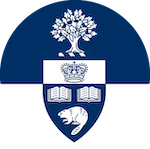
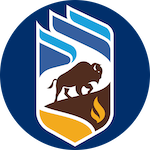
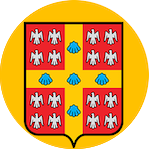
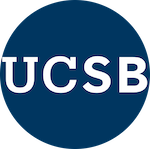
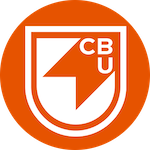


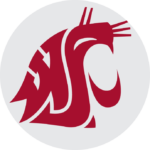

Sorry, the comment form is closed at this time.